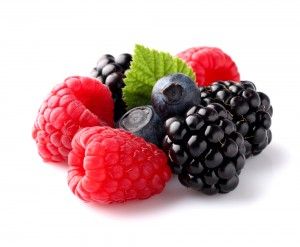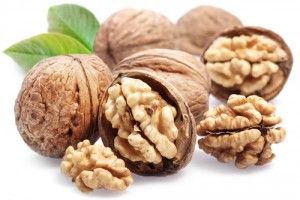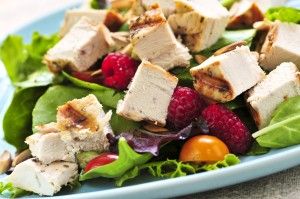What to Eat on the Fatty Liver Diet
In general, the less sweet and less processed food is the better chance of it being a part of the fatty liver diet, preliminary studies have found that fatty liver patients respond well to the plenty of fresh produce, nuts, olive oil, poultry and fish. The fatty liver diet advocates consumption of the following:
 |
- Plenty of produce – Brightly colored, fresh and organic produce are the best picks on the fatty liver diet. Brightly colored fruit and vegetables are rich in antioxidants that combat liver inflammation. Fruit and vegetables contain fiber which helps remove excessive fat from the bloodstream.
- Produce especially valuable to a fatty liver include blueberries, cherries, raspberries, oranges, grapefruit, papaya, tomatoes, spinach, broccoli, kale, asparagus, artichoke, mustard greens and bell peppers.
- Whole grains – These complex carbohydrates provide a steady supply of energy, help stabilize blood sugar levels and are low on the glycemic index. In addition, whole grains contain vitamins and minerals needed for optimal liver function. Good choices of whole grains for a fatty liver include oats, quinoa, barley, brown rice, wild rice and rye.

- Healthy fats – Unsaturated fats and omega 3-fatty acids are good for the liver’s health because they reduce inflammation. Healthy fats are found in nuts, seeds, cold-water fish and vegetable oils. More specifically, foods such as coconut oil, avocados, flax seed oil, wild salmon and mackerel help reduce liver inflammation.
- Protein at every meal – Protein at every meal, especially breakfast, helps balance blood sugar and insulin levels, reduces sweet cravings and provides the liver with the amino acids needed to function optimally. Good protein choices include eggs, a protein shake, nuts, seeds, fish, organic-free-range chicken and lean, grass-fed meat.
Fatty Liver Diet Ratios
Professional opinions on the ideal ratio of produce, carbohydrates, healthy fats and protein for preventing or reversing a fatty liver differ greatly. Some nutritionists advocate an emphasis on lean protein and fresh vegetables while others believe that whole grains should get the largest ratio allocation.
 |
Most healthcare providers agree that high levels of protein are best for liver health, unless the person has advanced liver disease. Individuals with cirrhosis might be advised to restrict their protein levels to prevent an accumulation of ammonia in the blood.
As such, those with advanced disease should consult with their healthcare provider for the ratios that would suit them best.
As such, those with advanced disease should consult with their healthcare provider for the ratios that would suit them best.
Overall, the fatty liver diet describes a healthy eating plan that can help almost everyone in numerous ways. Specific to fatty liver, by following the fatty liver diet, you will avoid foods that promote liver fat and eat foods that negate liver fat, both of which will help you shed excess weight, stabilize blood sugar levels and restore healthy blood fat proportions. By following the fatty liver diet guidelines described herein, your risk of fatty liver disease will diminish, and you will feel energized and healthier.
Comments
Post a Comment